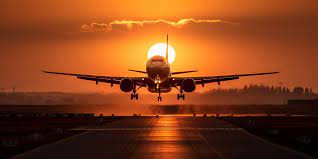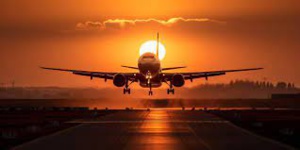Since Western sanctions over Moscow's invasion of Ukraine cut off supplies of essential parts and maintenance services, Russia has provided more than $12 billion in state subsidies and loans to keep its aviation sector afloat, according to a Reuters study.
Due to its reliance on foreign-built aircraft, Russia must overcome the difficult challenge of growing its aviation sector on its own using locally produced parts while purchasing aircraft from foreign lessors to prevent more of its fleet from being seized.
Since then, Russia has supported the civil aviation sector with 1.09 trillion roubles ($12.07 billion), including financial aid for airlines and the manufacturing of aircraft, according to calculations made by Reuters using data from the Ministry of Finance and the Accounts Chamber, which is in charge of overseeing budget execution.
The amount spent is nearly twice as much as payments paid in 2020–21, when the COVID-19 pandemic led to a sharp decline in air travel. This underscores the extent of the Kremlin’s attempt to seize control of a vital sector of the economy.
"Our fleet of aircraft is very overloaded ... with foreign-made planes," President Vladimir Putin said last week. "We plan to produce more than 1,000 aircraft by 2030, our own planes. Work is needed."
As per the aviation information company ch-aviation, Russian airlines presently fly 991 aircraft, out of which 405 are indigenous to Russia.
However, United Aircraft Corporation, a state-owned manufacturer, only produces 133 Superjets. Rarely are other Russian-built aircraft, such as the Tupolev, Yakovlev, and Ilyushin, used for commercial travel.
In response to Reuters' findings, the industry and trade ministry stated that support for the manufacturing of aeroplanes, a crucial industry, will continue for years to come.
"The main emphasis is on supporting sales, expanding production capacity and creating a post-sales service system," the ministry said.
For Russia, having a dependable aviation sector is especially important since it would help move people and commodities across its vast area and support Moscow's claim that the sanctions have had little effect.
Three months before voters head to the polls, Putin, who is rerunning for president, may face electoral and reputational pressure from the airline's failure.
Russia has been a major aviation force since the Soviet era, so its technological prowess is undeniable.
Even if the crisis in Ukraine ends, Western aviation experts predict that the investments would, at most, keep the fleet operating. However, they doubt that its aircraft will return to Western markets anytime soon.
This is due to the expense and red tape associated with reconstructing a fleet using authorised parts and a spotless and verifiable safety history.
According to the data, Russia has depleted its reserve money, having paid airlines 110 billion roubles in 2022 to make up for losses caused by a substantial increase in the price of jet fuel.
This year, Moscow has drawn about 400 billion roubles for aviation spending in 2023, indicating that the National Wealth Fund (NWF) has taken on a more significant funding role.
The amount of money that will be spent in 2022–2023 will be little less than 1% of the GDP that is anticipated in 2023. In 2022–2023, Russia invested an additional 2.3 trillion roubles in transportation infrastructure that isn't related to aviation.
In late 2022, domestic air passenger traffic in the nation started to increase when airlines discovered a means to import spare parts via a government-instituted grey import programme.
Due in part to the importation of spare parts through third nations without authorization from the manufacturers, namely Airbus and Boeing, Russian airlines have managed to maintain their fleet of Western jets.
While they are improving, passenger numbers are still below pre-COVID levels. A worry over aeroplane safety has been brought up in the meanwhile due to the loss of foreign parts and maintenance skills.
Sources in the aviation sector told Reuters last year that certain carriers have disassembled aircraft for spare components.
In an effort to reduce the possibility of its aircraft being seized while travelling overseas, Moscow hastily localised the registration of its fleet and has used NWF funds to repurchase planes from foreign lessors.
According to Transport Minister Vitaly Savelyev, aircraft from foreign lessors could be purchased in 2023 for 300 billion roubles.
According to the figures, 190 billion roubles have been spent so far, and planes are being held on behalf of airlines by the state-owned insurance company NSK.
According to a government document obtained by Reuters in the autumn of last year, Russia would need to spend at least 711 billion roubles on "achieving technological independence from foreign suppliers" in order to meet its aviation spending targets.
There were no comments on the issue available from Aeroflot, the transport and finance ministries.
(Source:www.thedailystar.net)
Due to its reliance on foreign-built aircraft, Russia must overcome the difficult challenge of growing its aviation sector on its own using locally produced parts while purchasing aircraft from foreign lessors to prevent more of its fleet from being seized.
Since then, Russia has supported the civil aviation sector with 1.09 trillion roubles ($12.07 billion), including financial aid for airlines and the manufacturing of aircraft, according to calculations made by Reuters using data from the Ministry of Finance and the Accounts Chamber, which is in charge of overseeing budget execution.
The amount spent is nearly twice as much as payments paid in 2020–21, when the COVID-19 pandemic led to a sharp decline in air travel. This underscores the extent of the Kremlin’s attempt to seize control of a vital sector of the economy.
"Our fleet of aircraft is very overloaded ... with foreign-made planes," President Vladimir Putin said last week. "We plan to produce more than 1,000 aircraft by 2030, our own planes. Work is needed."
As per the aviation information company ch-aviation, Russian airlines presently fly 991 aircraft, out of which 405 are indigenous to Russia.
However, United Aircraft Corporation, a state-owned manufacturer, only produces 133 Superjets. Rarely are other Russian-built aircraft, such as the Tupolev, Yakovlev, and Ilyushin, used for commercial travel.
In response to Reuters' findings, the industry and trade ministry stated that support for the manufacturing of aeroplanes, a crucial industry, will continue for years to come.
"The main emphasis is on supporting sales, expanding production capacity and creating a post-sales service system," the ministry said.
For Russia, having a dependable aviation sector is especially important since it would help move people and commodities across its vast area and support Moscow's claim that the sanctions have had little effect.
Three months before voters head to the polls, Putin, who is rerunning for president, may face electoral and reputational pressure from the airline's failure.
Russia has been a major aviation force since the Soviet era, so its technological prowess is undeniable.
Even if the crisis in Ukraine ends, Western aviation experts predict that the investments would, at most, keep the fleet operating. However, they doubt that its aircraft will return to Western markets anytime soon.
This is due to the expense and red tape associated with reconstructing a fleet using authorised parts and a spotless and verifiable safety history.
According to the data, Russia has depleted its reserve money, having paid airlines 110 billion roubles in 2022 to make up for losses caused by a substantial increase in the price of jet fuel.
This year, Moscow has drawn about 400 billion roubles for aviation spending in 2023, indicating that the National Wealth Fund (NWF) has taken on a more significant funding role.
The amount of money that will be spent in 2022–2023 will be little less than 1% of the GDP that is anticipated in 2023. In 2022–2023, Russia invested an additional 2.3 trillion roubles in transportation infrastructure that isn't related to aviation.
In late 2022, domestic air passenger traffic in the nation started to increase when airlines discovered a means to import spare parts via a government-instituted grey import programme.
Due in part to the importation of spare parts through third nations without authorization from the manufacturers, namely Airbus and Boeing, Russian airlines have managed to maintain their fleet of Western jets.
While they are improving, passenger numbers are still below pre-COVID levels. A worry over aeroplane safety has been brought up in the meanwhile due to the loss of foreign parts and maintenance skills.
Sources in the aviation sector told Reuters last year that certain carriers have disassembled aircraft for spare components.
In an effort to reduce the possibility of its aircraft being seized while travelling overseas, Moscow hastily localised the registration of its fleet and has used NWF funds to repurchase planes from foreign lessors.
According to Transport Minister Vitaly Savelyev, aircraft from foreign lessors could be purchased in 2023 for 300 billion roubles.
According to the figures, 190 billion roubles have been spent so far, and planes are being held on behalf of airlines by the state-owned insurance company NSK.
According to a government document obtained by Reuters in the autumn of last year, Russia would need to spend at least 711 billion roubles on "achieving technological independence from foreign suppliers" in order to meet its aviation spending targets.
There were no comments on the issue available from Aeroflot, the transport and finance ministries.
(Source:www.thedailystar.net)






